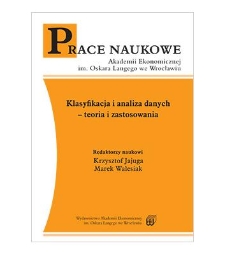Lower Silesian Digital Library contains 103 544 digital objects
Object
Title: Społeczne zaplecze systemów totalitarnych - robotnicy wobec władzy komunistycznej w Polsce (1945-1989)
Title in english:
The social background of totalitarian systems - workpeople in relation to the communist authority
Creator:
Description:
Prace Naukowe Akademii Ekonomicznej we Wrocławiu; 2006; nr 1131, s. 75-101
Abstrakt:
Publisher:
Wydawnictwo Akademii Ekonomicznej im. Oskara Langego we Wrocławiu
Place of publication:
Date:
Resource Type:
Resource Identifier:
Language:
Relation:
Prace Naukowe Akademii Ekonomicznej im. Oskara Langego we Wrocławiu; 2006; nr 1131 ; Ekonomia
Rights:
Wszystkie prawa zastrzeżone (Copyright)
Access Rights:
Dla wszystkich w zakresie dozwolonego użytku
Location:
Uniwersytet Ekonomiczny we Wrocławiu
Coverage:
Group publication title:
Prace Naukowe Akademii Ekonomicznej im. Oskara Langego we Wrocławiu
Object collections:
- Lower Silesian Digital Library > Resources > 2. Czasopisma > Czasopisma współczesne
- Lower Silesian Digital Library > Fields of science > 5. Nauki społeczne
- Lower Silesian Digital Library > Participants of the Consortium > 04. Wroclaw University of Economics > Periodicals published by the University Publishing House > Prace Naukowe Akademii Ekonomicznej we Wrocławiu
Last modified:
Mar 23, 2025
In our library since:
Mar 23, 2025
Number of object content hits:
3
All available object's versions:
https://dbc.wroc.pl./publication/171447
Show description in RDF format:
Show description in OAI-PMH format:
| Edition name | Date |
|---|---|
| Społeczne zaplecze systemów totalitarnych - robotnicy wobec władzy komunistycznej w Polsce (1945-1989) | Mar 23, 2025 |
Objects Similar
Chumiński, Jędrzej
Chumiński, Jędrzej
Chumiński, Jędrzej
Chumiński, Jędrzej
Chumiński, Jędrzej Rynio, Dorota. Redakcja Zakrzewska-Półtorak, Alicja. Redakcja
Chumiński, Jędrzej
Chumiński, Jędrzej Fiedor, Bogusław
























